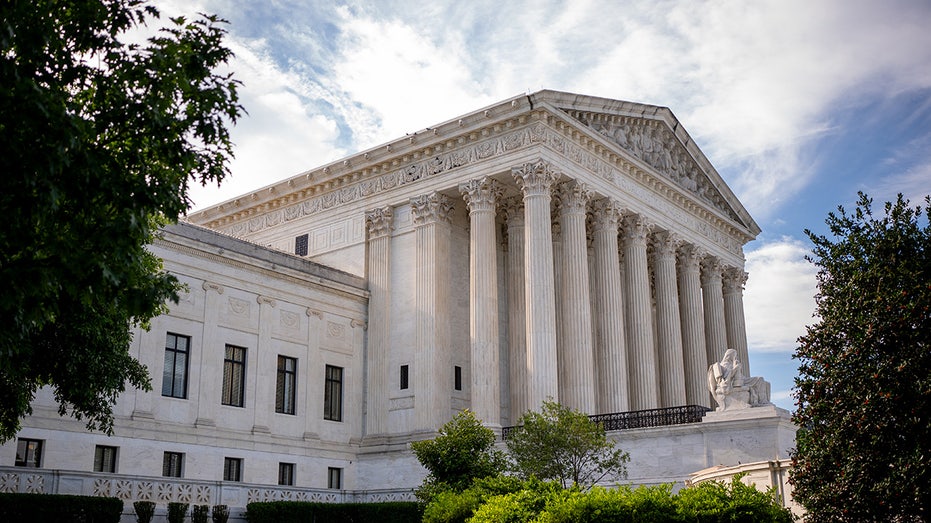
The oral argument on Nov. 5 for the Trump tariffs was fascinating as justices struggled with the knotty question of whether a president has the sweeping authority claimed by President Donald Trump under the International Emergency Economic Powers Act (IEEPA). The justices were skeptical and uncomfortable with the claim of authority, and the odds still favored the challengers. However, there is a real chance of a fractured decision that could still produce an effective win for the administration.
First, the counsel. I was highly impressed by the performance of Solicitor General John Sauer, who did a brilliant job in weaving historical and precedential arguments in favor of the tariffs. He had a tough case and at times a tough audience, but maintained a coherent and consistent position.
Many were surprised that the challengers selected the liberal firebrand Neil Katyal for counsel on the other side. Kavanaugh even made a quip about the incongruity of Katyal arguing for issues like non-delegation. Katyal struggled at points and Justice Amy Coney Barrett bashed him once for seemingly flipping his position in oral argument. However, Katyal made the key points against the claim of statutory and constitutional authority.
TRUMP ASKS SUPREME COURT FOR URGENT RULING ON TARIFF POWERS AS 'STAKES COULD NOT BE HIGHER'
Overall, the administration faced worrisome moments in the argument, with Chief Justice John Roberts repeatedly referring to tariffs as a clear "tax" and Justice Neil Gorsuch repeatedly raising the "major questions doctrine." Neither works well for the administration. If this is a tax, it is more likely viewed as a usurpation of Congress' inherent tax authority.
However, the head counting becomes more difficult as you comb through the specific questions of the justices.
We begin with the clear votes in favor of the challengers by Justices Sonia Sotomayor and Ketanji Brown Jackson. Indeed, at times, both justices seemed to take on the role of counsel in clarifying the confusion left by the challengers and directing them back to what they viewed as more solid ground.
SUPREME COURT TO WEIGH TRUMP TARIFF POWERS IN BLOCKBUSTER CASE
Justice Elena Kagan, as usual, was more circumspect, but still clearly leaning against the administration.
That leaves two more votes to reject the tariffs.
The most obvious candidate would be Barrett, who hit Sauer hard with questions on the largely unprecedented scope of the Trump tariffs. Much of this turned on the meaning of the terms "regulate importation" in IEEPA. Barrett asked pointedly: "Can you point to any other place in the code or any other time in history where that phrase, together with ‘regulate importation,’ has been used to confer tariff-imposing authority?"
Sauer stressed that a predecessor law was used in this manner, but Barrett repeatedly returned and was clearly not satisfied. At one point, Sotomayor (prematurely, in my view) snapped at Sauer and said, "just answer the justice’s question."
TRUMP WARNS SUPREME COURT TARIFF SHOWDOWN IS 'LIFE OR DEATH' FOR AMERICA
Nevertheless, Barrett offered the administration some hope in their questioning of the challengers.
She zeroed in on the fact that licenses are within the power of the president:
JUSTICE BARRETT: "So, this license thing is important to me. And do you agree that pursuant to IEEPA, the president could impose — could regulate commerce by imposing a license fee?"
Katyal seemed to struggle with this when Barrett noted that he had previously stated there is little difference between a license and a tariff. Barrett said that, if so, a president could regulate commerce in the same way with a license fee.
SUPREME COURT PREPARES TO CONFRONT MONUMENTAL CASE OVER TRUMP EXECUTIVE POWER AND TARIFF AUTHORITY
MR. KATYAL: "Not a fee. So, I should have said this earlier. But license is different from a licensing fee. IEEPA and TWEA authorize licenses, not license fees. And no president has ever charged, to my knowledge, fees under those two statutes for the licenses. So, fee is impermissible. License is OK."
JUSTICE BARRETT: "But I thought you conceded to Justice Gorsuch there was no difference between a tariff and a licensing fee functionally."
MR. KATYAL: "Well, if the — if the licensing fee is just to — I didn't concede that."
JUSTICE BARRETT: "OK."
Barrett kept telling Katyal that she was not following his arguments. Barrett also seemed intrigued by the incongruity that a president could use embargoes or quotas to effectively shut down trade entirely, so why shouldn't he be allowed to use the lesser of the powers?
The fifth vote could come from Gorsuch, but again, the rationales were strikingly different from those of the other justices.
Gorsuch clearly viewed the delegation of the authority as problematic and also raised the "major questions doctrine." However, he was also the most effective in hammering Katyal on plain meaning arguments, noting the verb "regulate" is "capacious."
If Gorsuch were to argue that the delegation is unconstitutional, he may find himself in the minority, but could then give the president the statutory argument on the broad implications of "regulate importation."
CLICK HERE FOR MORE FOX NEWS OPINION
Justice Brett Kavanaugh was the most useful for the administration in returning to the history of President Richard Nixon's global 10% tariff, under the Trading with the Enemy Act, the predecessor of IEEPA.
He also highlighted how, in FEA v. Algonquin SNG (1976), the court allowed the exercise of tariff powers. At one point, he slammed Katyal's effort to rewrite the decision and said, "Algonquin didn't have anything like that, but keep going."
There is a chance that the challengers could eke out a majority with Barrett and possibly another conservative, such as Gorsuch or Roberts. However, it is also possible that, when the justices delve into the details, they may find a fragmented rationale that ultimately works to the advantage of the administration.
In the meantime, Congress may want to get started in addressing what Barrett described as "the mess" of reimbursement if the tariffs were found to be unlawful.


